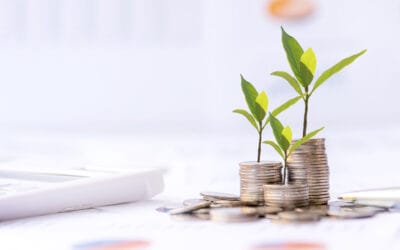According to a new report published today from Legal & General Investment Management (LGIM), policy inaction, especially on carbon emission pricing, is preventing a market-led, timely transition to a net zero world, and the economic and geopolitical consequences of this delayed transition are likely to be significant.
LGIM believes financial markets and investors are underestimating the long-term impact of the ongoing delay of transitioning to net zero.
The report found that while achieving a Paris-aligned outcome would be cheaper and easier to achieve than ever before, the window to successfully meet a 1.5°C climate outcome is closing at a worrying speed. According to LGIM, the biggest policy lever available to help guide the transition and drive real change, is carbon pricing, however this solution remains largely unused. Indeed, in our view what is required is an effective, transparent and significant price on emissions that could be consistently applied and allow price signals to drive a market-led solution to the climate crisis.
Today, around 23% of emissions are subject to a carbon price, but prices are often set at a level too low to make a difference1. Globally, emissions currently cost on average $6 per tonne of CO2, and only around 4% of emissions are covered by a carbon price within the range needed by 2030 to meet the Paris targets.
Nick Stansbury, Head of Climate Solutions, LGIM, said: “Global emissions are on track to reach all-time highs, and we have observed little tangible evidence that this trajectory is likely to change any time soon. Our modelling tells us that a delayed below 2°C scenario is economically disruptive and costly, and so delaying the more ambitious target of 1.5°C is something that the world cannot afford.
“We believe the single most effective policy measure that the world could take to drive global emissions down, is to put an effective price on them. A meaningful carbon price, covering all global emissions by an explicit tax or a cap-and-trade mechanism, is desperately needed to induce the immediate and dramatic capital allocation required to build a low carbon energy system in our view. However, an objective perspective on the current policy environment would not suggest that this sort of policy is likely any time soon. Instead of tangible action, continued procrastination seems the path of least resistance.”
The report, which is based on LGIM’s extensive climate modelling, also found that costs may no longer be the most important barrier to the transition to net zero. A low carbon energy system is now so cheap, that further improvements in costs and efficiencies are no longer likely to have as large an impact on the pace of change as they have had historically. Instead, the modelling suggests that it is the speed at which capital can be deployed into low carbon energy systems that is now the most important driver and most pressing challenge.
Nick Stansbury, continued: “To follow our Net Zero 1.5°C pathway, we estimate average annual gigawatt capacity additions to 2050, would have to be three times current levels for solar and double for wind. But this is far from being just about making capital available, removing bottlenecks like permitting and infrastructure are just as important as capital availability to unlock this acceleration. Science and engineering have already delivered much of the cost reduction, but now, the emphasis is on capital providers to dramatically accelerate the flow of capital into the low carbon energy system of the future.”
The impact of climate procrastination
As well as outlining the need to transition sooner, the LGIM report goes on to suggest that, what should have been a market-led, managed and orderly transition to net zero over a quarter of a century, instead risks being compressed into a chaotic and disorderly transition where the bulk of the decarbonisation effort needs to take place in little more than a decade.
As a result of this, LGIM warns that the financial consequences of this sort of shock would be significant, with as much as 10% of global GDP estimated to be at risk by 2050. The delayed transition will almost certainly lead to a sustained building of inflationary pressures which may start to materialise just as the current wave of energy price led inflation starts to recede.
In addition, this current period of elevated market volatility is likely to persist and may over time worsen. As the fundamental inequity of a delayed transition starts to manifest, it is believed that emerging market populations, particularly South Asia and sub-Saharan Africa, will start to experience both serious physical climate risks (which they are likely to experience before those in developed markets), and the economic consequences of a delayed transition. The resulting geopolitical consequences are likely to be significant as politicians may look to raise trade barriers in response leading to the very real possibility of mass migration.
Nick Stansbury, continued: “We worry that the financial consequences of this ‘climate procrastination’ are being badly underestimated by markets today. Whilst there are some factors that could dampen the risk, we believe that there are at least as many if not more that could worsen it.
“We are confident that unless we see a dramatic change in the policy environment leading to effective pricing of global emissions, we are getting closer every day to the point when markets will be forced to engage with what may well be an ugly future. We face a transition that is far more costly, disruptive, and ultimately unjust than it needs to be, with possible dramatic consequences for financial markets.”
















